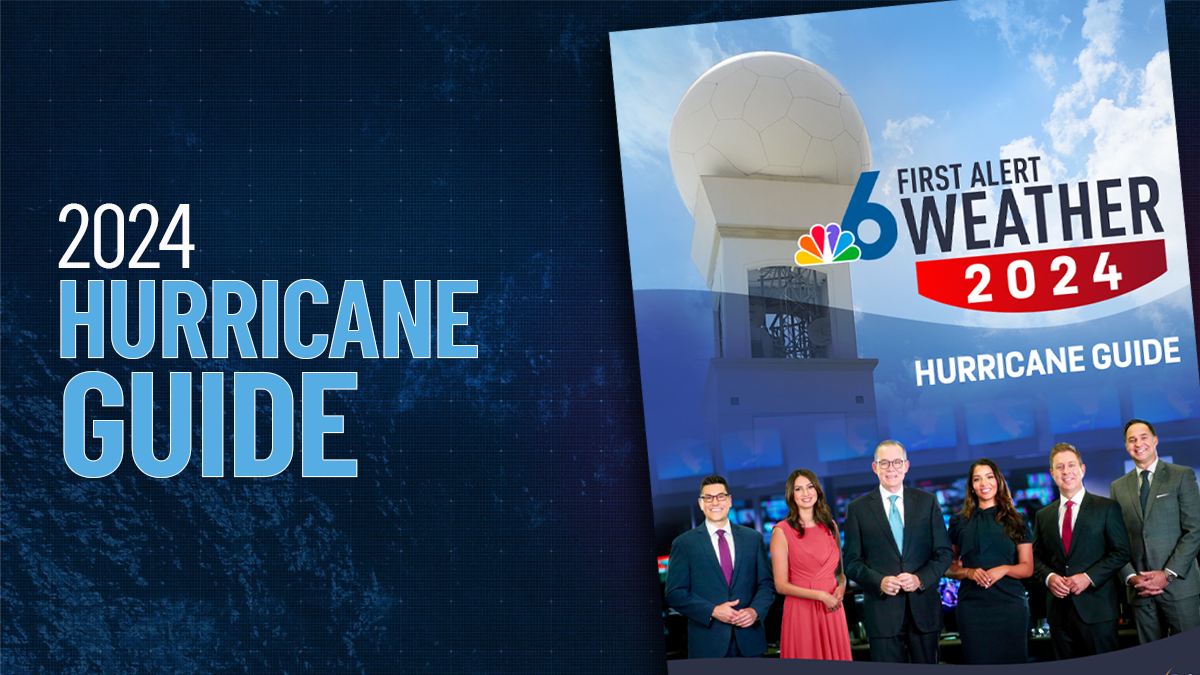One more for the road? … this unending hurricane season had to deliver one more surprise in its waning days.
Tropical Storm Sara formed on Thursday off the coast of Honduras and was poised to deliver potentially catastrophic rains there, and possibly in surrounding Central American countries. U.S.-based weather agencies like NOAA’s Weather Prediction Center and the National Weather Service’s National Hurricane Center were officially calling for 10 to 20 inches of accumulation in Honduras, “with isolated storm totals around 30 inches.” But both the European and American models pointed at prolonged precipitation episodes lasting well beyond the initial impact of Sara which would dump 40 inches of rain between now and Thanksgiving.
Watch NBC6 free wherever you are
>The coastal city of La Ceiba is within the area where most of the rain is forecast to occur. Twenty-six years ago when infamous Hurricane Mitch made landfall there, 34.4 inches of rain accumulated. There is a chance Sara may produce a similar amount. Hopefully Sara won’t be able to duplicate Mitch’s prolific rate of precipitation in mountainous locations, where unofficial rainfall totals were as high as 75 inches. But the concentration of carbon dioxide in the atmosphere was a “mere” 366 parts per million (ppm) in 1998. Now it’s 423 ppm (versus the pre-industrial level of 280 ppm). Mitch claimed approximately ten thousand lives when it struck in late October 1998.

Get local news you need to know to start your day with NBC 6's News Headlines newsletter.
>Sara would spend the entire weekend in or near Honduras. NHC isn’t forecasting the storm’s center to depart that country until Monday, with a path through Belize, possibly northern Guatemala, then through Mexico’s Yucatan peninsula, and on to the southern Gulf of Mexico by Tuesday. So many days over land would deprive Sara of the high-octane warm ocean fuel needed for rapid intensification. Instead, Sara is forecast by NHC to emerge into the Gulf as a weakened tropical depression.
This is good news for Florida.
A track over land not only weakens Sara, but it sends its core further west towards a collision course with wind shear and dry air that’s expected to reach the western Gulf of Mexico at the beginning of next week. Then, a cold front would arrive from the northwest late Tuesday to whisk whatever remains of Sara towards the east. Whether Sara gets to Florida as a depression, weak tropical storm, or a remnant shell of a storm, all options are definitely more palatable than having to think of a hurricane threat this late in the season for a state that’s already been battered in 2024.
Hurricane Season
The NBC 6 First Alert Weather team guides you through hurricane season
The 2024 Atlantic hurricane season has officially crossed the “hyperactive” threshold. Accumulated Cyclone Energy (ACE), which counts both the number of tropical systems and their intensity, passed the 159.6 mark required for NOAA to officially classify the year as “extremely active”. By the ACE metric, the season is running 35 percent above normal so far.
Sara will just add to that.



